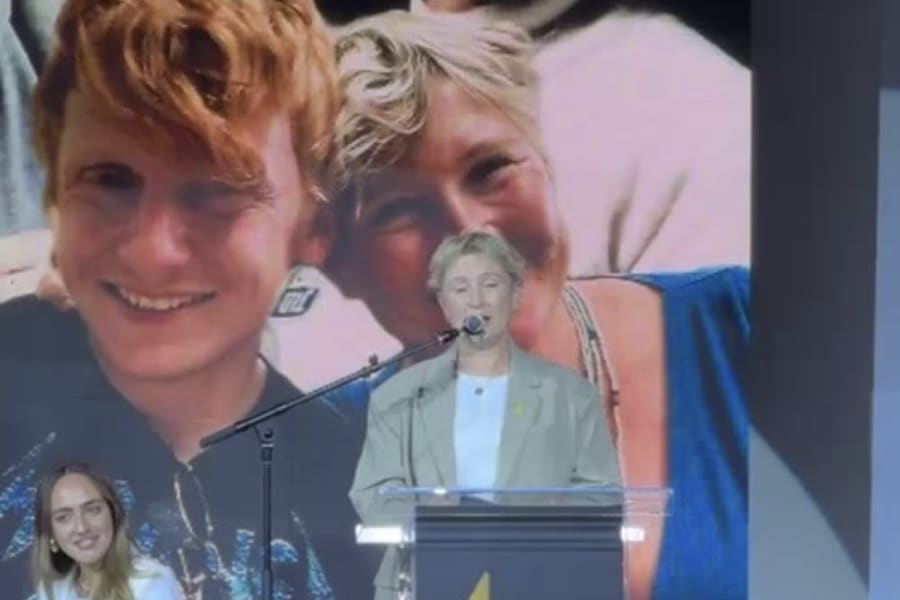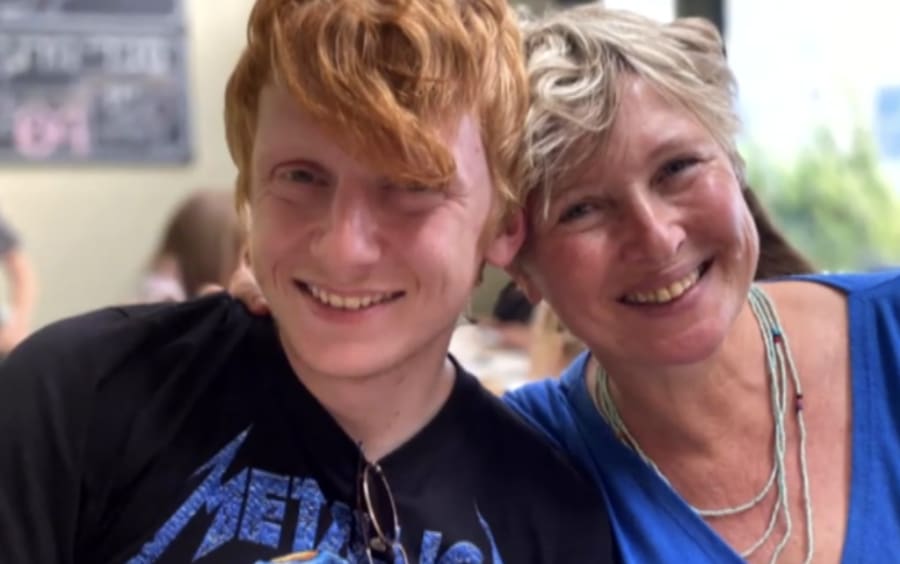Iris Haim, mother of Israeli hostage mistakenly killed by IDF, speaks up for Israel

Iris Haim became an Israeli icon in the events that followed Oct. 7 and now she’s taking a message of love and unity to the world. Her son Yotam was one of the three hostages who managed to escape Hamas captivity, only to be shot by IDF soldiers before they were identified a moment too late.
For a nation reeling from the worst invasion and terror attack in Israel’s history, the tragedy that took place in Shejaiya last December was almost too much to bear. But then the mother of Yotam spoke up publicly, forgiving the young soldiers for her son's death.
“I am Yotam’s mother,” her voice came in a recorded message. “I wanted to tell you that I love you very much, and I hug you here from afar. I know that everything that happened is absolutely not your fault, and nobody’s fault except that of Hamas, may their name be wiped out and their memory erased from the earth…"
She continued: "I want you to look after yourselves and to think all the time that you are doing the best thing in the world… Nobody’s going to judge you or be angry. Not me, and not my husband Raviv. Not my daughter Noya. And not Yotam, may his memory be blessed. And not Tuval, Yotam’s brother. We love you very much. And that is all.”
This message of forgiveness stunned the nation and was transformative for the traumatized soldiers involved. Her words were like a healing balm to the broken country, but that was not all.

Now Haim is taking her ointment of her message of love and reconciliation beyond the borders of Israel, and out to the world ripped apart by this war.
She arrived in California this week to speak up for Israel at a time of great hostility.
Starting in Toronto, Canada, Haim began a tour of lectures and fundraisers to advocate for Israel three weeks ago. San Francisco and San Diego are next on her itinerary, where she will speak up for the Jewish state.
“It’s hard to explain,” she said in an interview with the Times of Israel, “but after what happened it became clearer to me how much I love Israel. Before October 7, I was entrenched in my own camp; I knew only people like me, who think like me, who talk like me, who look like me… Then my boy was kidnapped into Gaza and all of Israel stood up to help us."
“Something had opened up inside me. I can see the humanity in everyone; the good intentions of every person… Now I see everyone’s contribution. I am coming now with a perspective that is very different. Okay, there are other voices [that you hear in the media], but that doesn’t tell the real story of Israel. We know what we went through on October 7, we remember and won’t forget, and now we’re looking for a new way… No more “us versus them,” right versus left, secular versus Haredi; I am bringing a new voice of hope, of togetherness, and there is a very large demand for this message.”
Haim said that she’s received a lot of responses from Israelis supporting her message of unity, and said that focusing on what’s wrong “weakens us as a state, and Hamas exploits it.”
“I want the discourse in the State of Israel to change. Sure we can argue, but not in the manner that it’s done today. Politics are very militant; we have many ex-generals in parliament. Israel wants something else, even if you can’t see it right now, and there are a lot of people contacting me to bolster this message of unity.”
There were deep divisions in Israeli society before the war, and Haim will be vocalizing the need for the nation of Israel to come together as one.
In the Middle East, there is the tradition of “sulha” meals for reconciliation, still practiced today in some Bedouin and Arab communities. In this tradition, enemies come to the table (sulha) to eat together and resolve conflict, restoring peace between families and tribes.
Haim took the extraordinary step of inviting the soldiers who accidentally killed her son to eat with her at her table.
“She invited the IDF soldiers to her house and she hugged them and she had them for dinner”, reported ILTV’s Ariella Lahyani. “It was so insightful and inspiring at a time where so many people are against us is such a time we don’t turn our back on each other.”
Yotam Haim was kidnapped from Kibbutz Kfar Aza and spent 65 days in captivity before escaping. He and two other Israeli hostages, Alon Shamriz and Samer El-Talalqa, had escaped captivity but were hiding in Gaza for five days before the tragic shooting happened.
Haim said her family has decided not to focus on the negative.
“When I see all of the Israeli people raising as one to help each other, to help us, I felt all the Israeli love... When I saw it I was very very proud.”
She said that Yotam spoke a lot about the freedom of the soul, and she mentioned that his red hair was like King David's. She takes comfort in the fact that her son, like David, is now part of Israeli history. And so is she.

Jo Elizabeth has a great interest in politics and cultural developments, studying Social Policy for her first degree and gaining a Masters in Jewish Philosophy from Haifa University, but she loves to write about the Bible and its primary subject, the God of Israel. As a writer, Jo spends her time between the UK and Jerusalem, Israel.














